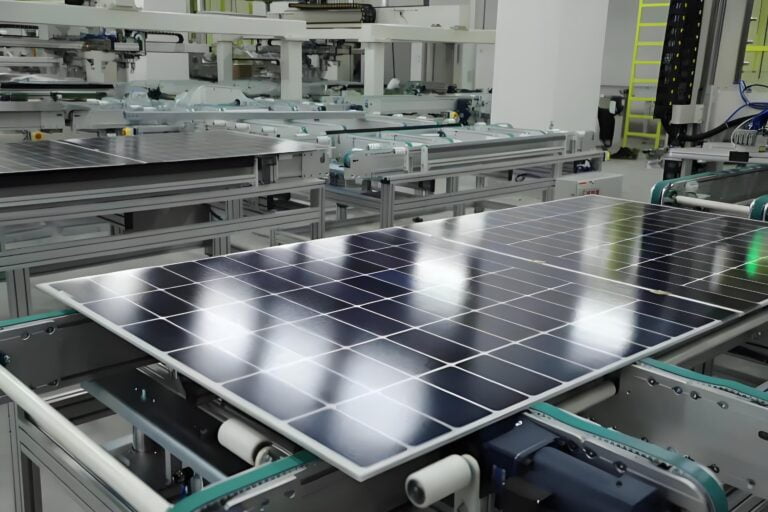Analysis of PCS Operating Modes in Modern Power Systems
In modern power systems, solar energy storage technology is a crucial means to achieve efficient energy utilization and stable operation. As the core device connecting batteries and the grid, the working mode of the Power Conversion System (PCS) directly affects the performance of the storage system. Today, we will delve into the three main operating modes of PCS: grid-connected mode, off-grid mode, and hybrid mode.
01 Grid-Connected Mode – The Key to Bidirectional Energy Conversion
In grid-connected mode, PCS achieves bidirectional energy conversion between the battery pack and the grid and possesses the characteristics of an inverter. The main features include:
✅ Anti-Islanding Protection: In the event of a grid outage, PCS can automatically stop supplying power to the grid, preventing islanding.
✅ Grid Synchronization: PCS can automatically track the phase and frequency of the grid voltage, ensuring synchronous operation with the grid.
✅ Low Voltage Ride-Through: When the grid voltage temporarily drops, PCS can maintain operation, ensuring power system stability.
Specific applications include:
✅ Off-Peak Charging: During off-peak periods, PCS converts AC power from the grid to DC power to charge the batteries. At this time, PCS plays a role in battery charge and discharge management, ensuring an efficient and safe charging process.
✅ Peak Discharge: During peak periods, PCS converts DC power from the batteries to AC power and feeds it back to the public grid, alleviating grid stress.
✅ Power Quality Regulation: When power quality is poor, PCS can feed or absorb active power to the grid while providing reactive compensation, improving power quality.
02 Off-Grid Mode – Ensuring Independent Power Supply
Off-grid mode, also known as islanding mode, refers to situations where PCS can detach from the main grid and independently supply power to local loads. The main functions of this mode include:
✅ Autonomous Power Supply: When the grid cannot provide stable power, PCS can independently supply AC power that meets grid power quality requirements to local loads based on set requirements.
✅ Emergency Power Supply: In the event of grid faults or natural disasters causing power outages, PCS can quickly switch to off-grid mode to ensure continuous power supply to critical loads.
Off-grid mode is crucial in remote areas or emergency backup power systems, ensuring power supply when the grid fails.
03 Hybrid Mode – Intelligent Grid with Flexible Switching
Hybrid mode is an advanced operating mode of the storage system, capable of flexible switching between grid-connected mode and off-grid mode, ensuring system reliability and flexibility.
✅ Microgrid Operation: The storage system operates in a microgrid, normally connected to the public grid with PCS operating in grid-connected mode. If the microgrid disconnects from the public grid, PCS immediately switches to off-grid mode to provide the main power source for the microgrid.
✅ Multifunctional Applications: Hybrid mode can achieve filtering, grid stabilization, and power quality regulation, and can also self-heal in case of faults to restore power supply.
Common application scenarios for hybrid mode include:
✅ Power Regulation: By frequently switching operating modes, it regulates grid frequency and voltage, maintaining power system stability.
✅ Self-Healing Function: In the event of a grid fault, the storage system can automatically switch to off-grid mode to quickly restore power supply.



